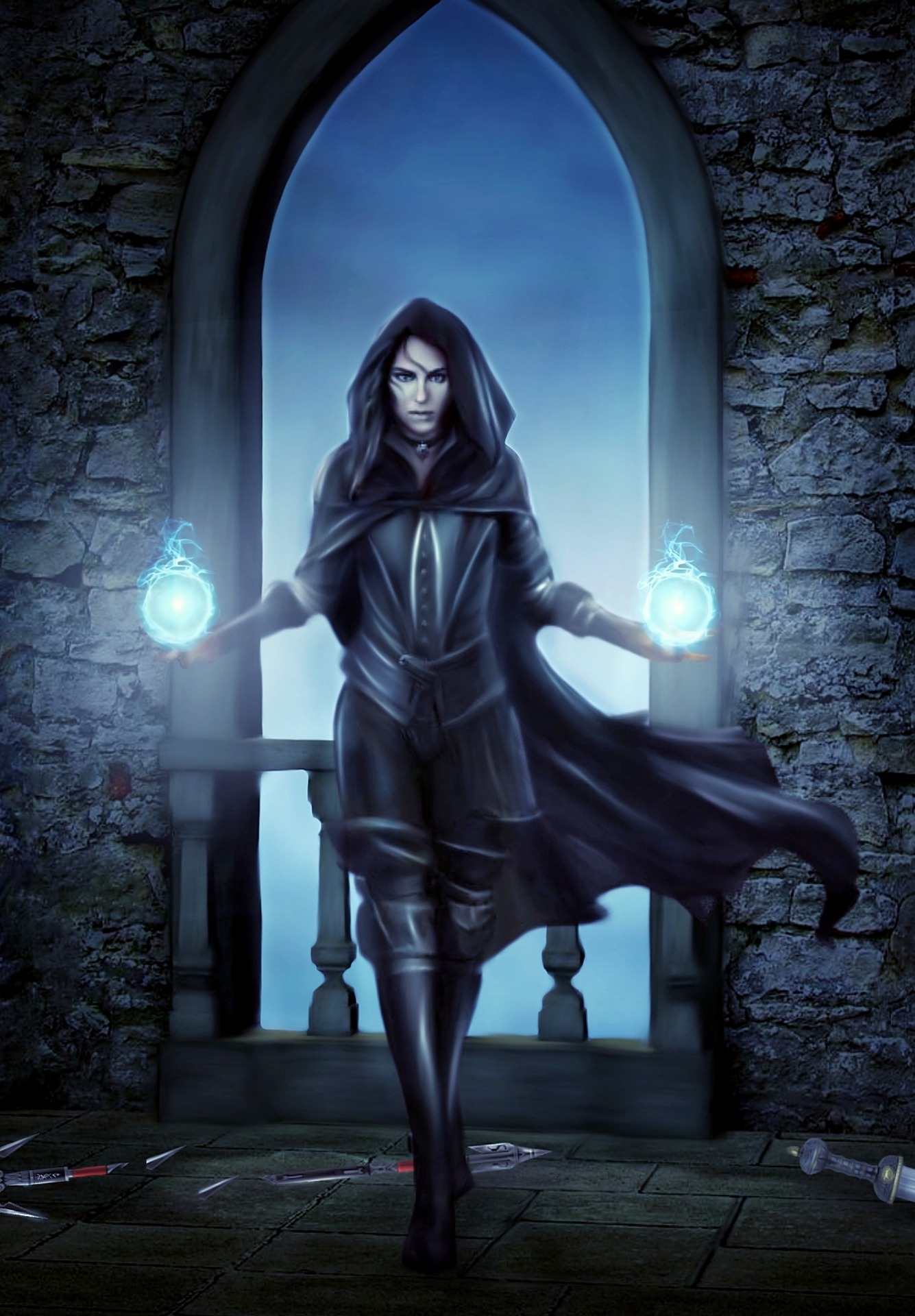
Modern psychology has furthered Jung’s initial inquiry and categorised aspects of human nature that relate to the 12 main archetypes and their shadows. The Grandstander Bully is an outcrop of the hero archetype and displays negative attributes of the “warrior” archetype.
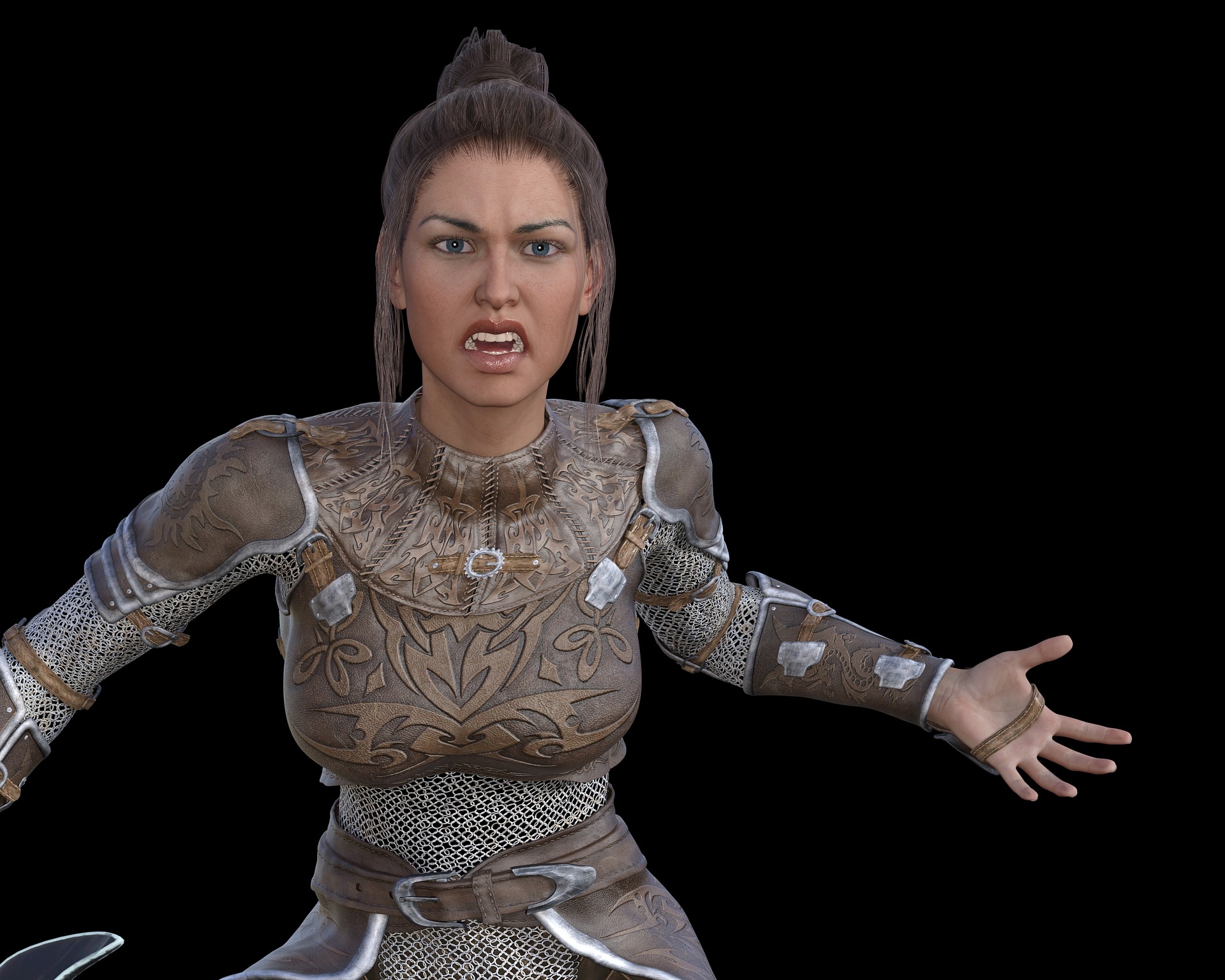
Before we get into the Grandstander Bully, it is pertinent to understand what the warrior-hero archetype is because the Grandstander Bully is a shadow aspect.
In order to use archetypes as a self-development tool, it is necessary to understand how to identify archetypal energies within yourself. This can be tricky with modern psychology given they have named about 325 archetypes.
In my opinion, it is easier to use Jung’s original 12 archetypes as a starting point and identify which of the modern archetypes (and their shadows) fall into that category. For example, the hero comprises of the warrior, explorer, outlaw, lover and several others in the extensive list of subcategories.
However, as Robert Moore and Douglas Gillette point out in their book, King, Warrior, Magician Lover, there are subtle differences between Jung’s original 12 archetypes and the archetypes identified in modern-day psychotherapy.
“He accurately assesses his own strength and skill. If he finds that a frontal assault will not work, he deflects his opponent’s assault, spots the weakness in his flank, then “leaps” into battle. Here is a difference between the Warrior and the Hero. The man (or the boy) accessing the Hero, as we’ve said, does not know his limitations; he is romantic about his invulnerability. The warrior, however, through his clarity of thinking realistically assesses his capacities and his limitations in any given situation.” ~ Robert Moore, Douglas Gillette, King, Warrior, Magician Lover
The mythological hero is not a hero at the beginning of the story of course. He/She only becomes the hero when he/she accomplishes his/her goal. Cultivating warrior energy in its fullness is a result of the heroes courage, strategical thinking, quick-wittedness and will power.
The same is true for you in your own hero’s journey. These attributes have to be performed so they become automatic programs in your subconscious. Until the warrior has matured in its fullness you will see traces of its shadow appearing from time to time, one of which is the Grandstander Bully.
As an outcrop of the negative attributes of the warrior, the nature of the Grandstander Bully is chaotic, irrational, abusive, violent and emotionally detached.
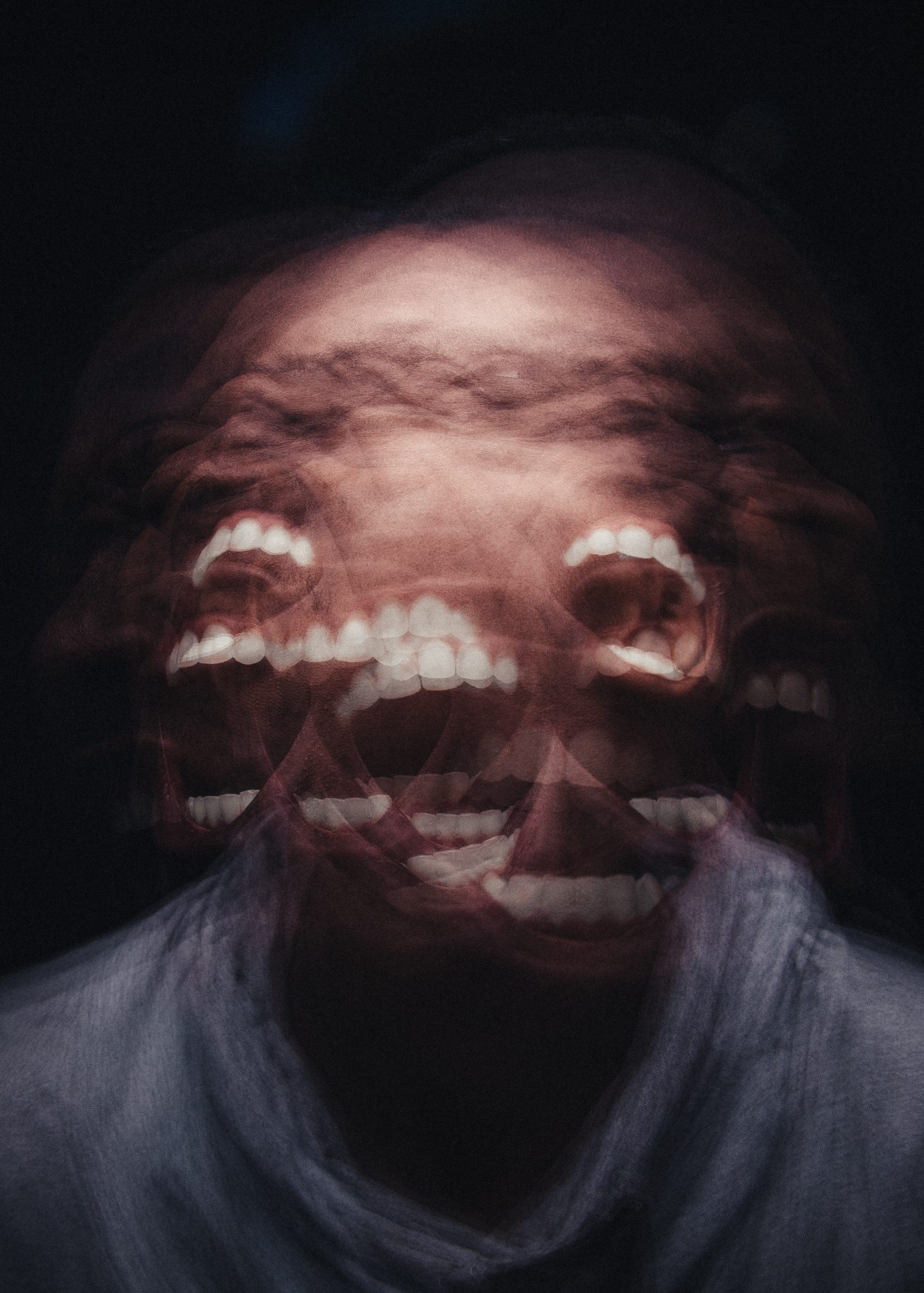
I intend to publish the symbolism course titled Greek Gods & Archetypes. The course will go into detail about archetypal energies are reveal how subtle energies are reflected in the gods and goddesses of ancient myth. With this information, you have a powerful self-development tool you can use to identify repressed emotions and upgrade your subconscious programming.
This article is an example of what you can expect from the course content. More content like this will also be available in the VIP Members Area which is reserved exclusively for customers that have purchased any of the full symbolism courses or a self-development course.
Heroes in mythology are essentially created to reflect the psyche of man. As with all the archetypes, they are energies that exist in the unconscious that try to make themselves known to the conscious mind.
The mythological hero also reveals the importance of overcoming habitual and limiting programs that are installed in the subconscious mind. It is these programs that hamper the maturation of the psyche. Dragon-slayer myths are a prime example of the hero overcoming subconscious programs.
The first thing to note about the mythological hero is that he is not actually a hero until he (or she) overcomes the challenge they are faced with.
“The hero who clings to the mother is the dragon, and when he is reborn from the mother he becomes the conqueror of the dragon.” ~ Carl Jung, Symbols of Transformation
This is also true about the hero archetype in the psyche of mankind. You will not nurture the hero within until you reach a point of self-realisation. This can come in many forms and subtle ways.
For the majority of the time, self-realisation is reached when you overcome fear-based programs and limiting beliefs. When you face the unknown it is a natural instinct to be afraid.
But why is that?
One answer is because we live in a fear-based society fuelled by geopolitics and mainstream media. However, as a child, fear is programmed in much more subtle ways; abandonment, being told you’re not good enough, or you’re stupid, or you can’t do that, you’ll never make anything of yourself etc.
You carry these false beliefs with you into adulthood. Eventually, the programs block your path and you struggle to overcome obstacles. Failure, or even fear of failure, causes anxiety, stress and a lack of self-esteem.

Until the hero in its fullness is developed in your psyche, you will struggle with habitual habits, addictions, fear, stress, anger, frustration and a shitload of other negative emotions that arise from the subconscious to throw your life into chaos.
What you need to do is upgrade your subconscious programs. In doing so you expand conscious awareness and develop your psyche from primitive consciousness to super-consciousness.
When the hero is matured, individuals will develop courage and inner-strength (warrior energy), independence (outlaw energy), individuality (seeker energy) and an appreciation of all things (lover energy).
In their book, King, Warrior, Magician, Lover, Robert Moore and Douglas Gillette describe the Hero as “an advanced form of Boy psychology.”
Hey-ho.
In my view, to become complete, you need to integrate all the unconscious energies into your psyche. And that involves understanding the qualities of all the archetypes that adhere to the Masculine Principle and the qualities of all the archetypes that adhere to the Feminine Principle.
As noted by Moore and Gillette, the Hero archetype is immature psychology which typically reveals itself around adolescence. When carried over into adulthood, the shadow hero blocks men from reaching full maturity.
One aspect of the shadow is the Grandstander Bully.
The Grandstander Bully is a name given by modern psychology for the shadow warrior and is clearly reflected in the character of Ares in Greek mythology. The positive aspect of the hero archetype in its fullness is the warrior and the Grandstander Bully (together with the Coward, the Sadistic Warrior and the Masochist) are names given by mainstream psychology today.
Adults that are emotionally insecure rely on strengths in the outer world. Being able to perform specific tasks well boosts your self-confidence. Sometimes these skills are seen in an energetic personality that is excellent in social environments.
However, when your values are degraded by somebody, or you find yourself in a situation where your skills or personality are not recognised, the inner insecurities surface. This is when the Grandstander Bully stands up. The role of the bully is to protect your ego.
This energy typically appears in people with a violent or vindictive nature. It will also flip between the coward, the sadistic warrior and the masochist.
When the hero remains immature, positive energies that bring the hero to fullness remain in the unconscious. As Jung noted, energies have characteristics of their own which surface as personality traits in the individual.
“The archetypes are the numinous, structural elements of the psyche and possess a certain autonomy and specific energy which enables them to attract, out of the conscious mind, those contents which are best suited to themselves. The symbols act as transformers, their function being to convert libido from a “lower” into a “higher” form. This function is so important that feeling accords it the highest values. The symbol works by suggestion; that is to say, it carries conviction and at the same time expresses the content of that conviction. It is able to do this because of the numen, the specific energy stored up in the archetype. Experience of the archetype is not only impressive, it seizes and possesses the whole personality, and is naturally productive of faith.” ~ Carl Jung, Symbols of Transformation
People under the influence of the Grandstander Bully demand respect from others. When they don’t get it, they can turn angry, or nasty very quickly. When confronted by somebody they can physically overpower, the shadow hero erupts in a tirade of violence.
Verbal abuse is another way for Grandstander Bully to unleash itself from the unconscious. As we see with the irrational acts of the Greek God Ares, when people are overpowered by the Grandstander Bully, they will perform foolish acts to prove they are not “chicken” or to take risks to achieve a goal without thinking things through.
Instinctive actions rarely give you time to recognise the consequences. For individuals to have the vision of foresight, you also need to develop the energies of Apollo (foresight) and Athena (strategical thinking).
The Grandstander Bully archetype is most often seen in teenage boys and girls that appear confident on the outside but are actually emotionally fragile at their core.
They are emotionally insecure.
Moreover, when the shadow warrior energy is dominant in an extravert person that is a Grandstander Bully, they want to be the centre of attention, earn admiration and fish for compliments.
You can also include headstrong, recklessness, irrational behaviour, anger, impatience, aggression and a quarrelsome nature among the list of negative qualities in this archetype.
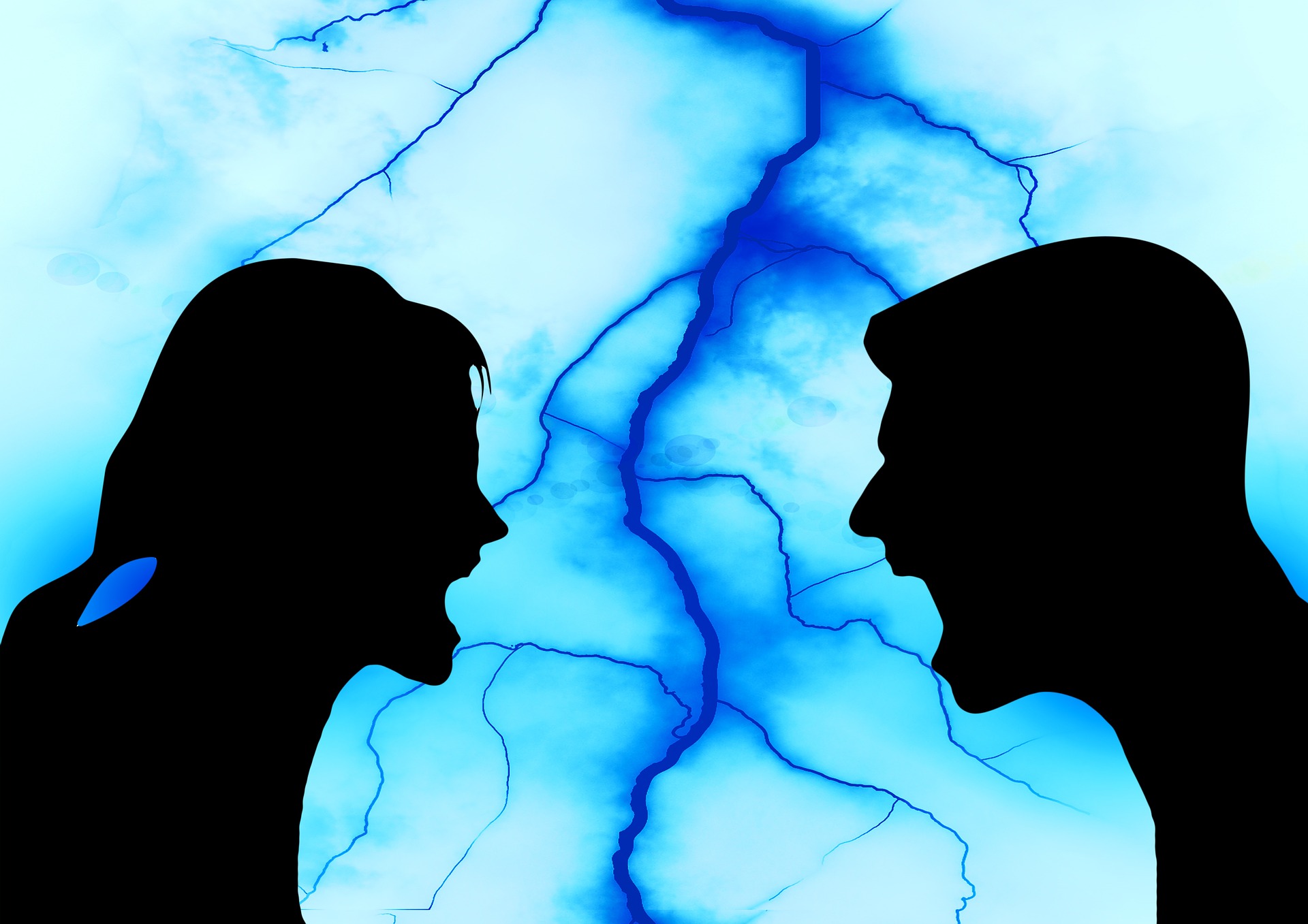
If you’re the type of person that is capable of self-reflection, you will be able to identify repressed energies that prompted you to behave in a foolish or destructive way.
In its less negative state, the Grandstander Bully wants to believe they are better than everybody else. When they are undermined, they don’t brood and sulk but lash out with violence or belittle the other person with a sharp tongue to make themselves feel superior.
If the anger is not released in a fit of violence, the frustration will bubble under the surface until it is unleashed on somebody else; a wife, a son, a daughter or a random person that happens to get in the way.
Road rage is also a typical way for the Grandstander Bully to surface. In men that like to fight, they wouldn’t be afraid to get out the car to try and attack the other driver. The occasional bar brawl is not out of the question and beating family members can be a frequent occurrence.
The Grandstander Bully can also flip to the passive force of the Shadow Warrior and vice versa. For example, road rage for the archetypal Coward is a great way for introverted people with repressed anger issues to release tension because they can vent in the safety of their own car. Ordinarily, they wouldn’t confront somebody face-to-face unless they thought they were superior to them.
Sometimes you need to look at what you have achieved rather than comparing yourself to others.
The classic Grandstander Bully in the Greek Pantheon is Ares, the God of War. He charges into battle without a strategy and is made to look a fool in defeat.
Two examples can be seen when Ares attempts to overcome the hero Herakles. The latter won the first confrontation by striking Ares three times with his spear. Each time he knocked the god to the ground and advanced into the city of Pylos which Ares was defending.
Another example can be seen when Ares attacks Herakles after the hero kills his son, Kyknos. Ares charges at Herakles thrusting his spear. In a swift upwards blow with his shield, Herakles knocks the god of war to the ground in humiliation.
The hero, Herakles represents man in his fullness; pure consciousness that has autonomy over emotions in the conscious mind. At the beginning of the story, Herakles displays the nature of a Grandstander Bully by murdering his family. Hera had sent him crazy.
When whole – as Herakles is after completing his 12 labours – consciousness is a formidable presence.
This Supreme Consciousness – if you wish to call it that – is the fixed nature of your mind and thus the decision-maker – the ruler or King that oversees and influences every atom in your body.
In Greek Mythology, the centre of consciousness is personified by Zeus, the ‘King of the Gods’ and father of Ares.
Zeus hated Ares because of his uncontrollable frenzy in battles and his irrational nature to act without thinking. Such reckless behaviour supercharged by anger and frustration is undervalued in society.
“Psychologically, Ares represents Zeus’ shadow, that part of himself that he disparaged because it was developed and/or was contrary to the ideal image he had of himself.” ~ Jean Shinoda Bolen M.D., Gods In Everyman
Zeus prefers his warrior daughter, Athena, the goddess of wisdom, also represents the Warrior archetype but in its controlled form. When warrior energy is integrated into the conscious mind, you are able to use aggression in a positive way; drive, determination and motivation.
Athena, who was born directly from Zeus’ head, possesses the same aggressiveness as Ares in battle but has the ability to control her emotions, keep a cool head and take a practical approach through strategic thinking.
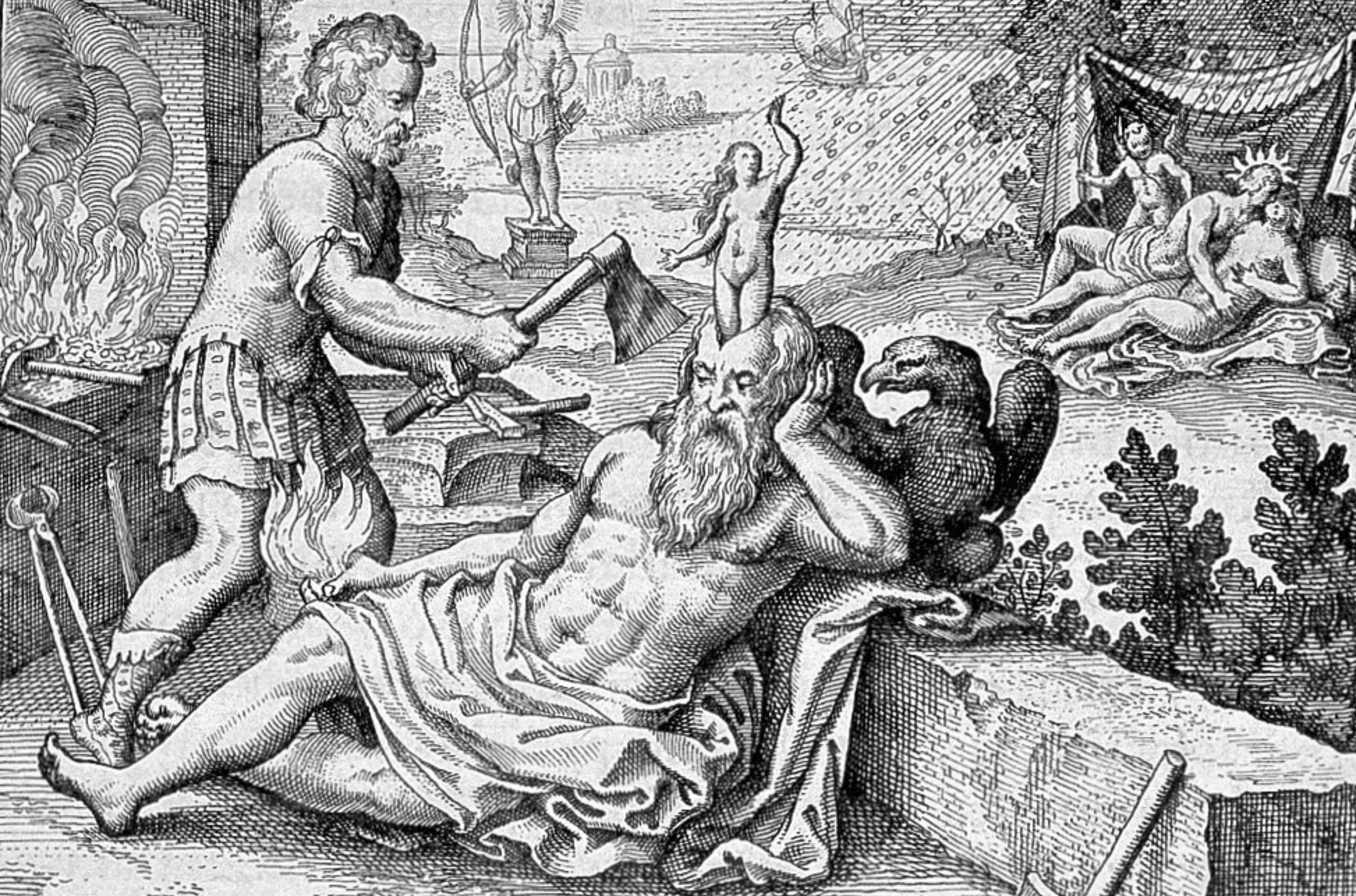
When a father does not provide morale-boosting support and practical advice, a child develops low self-esteem and a lack of self-worth. The frustration a child feels is often bottled up because they are not allowed to express their emotions.
A child that is bullied and belittled by his father is likely to develop feelings of inferiority. As an adult, this will result in a superiority complex, and inferiority complex and a father complex – more of which you can read about by clicking on the link.
Greek Mythology explains repressed anger and lack of support from parents and teachers can develop into destructive behaviours. Some people will react, with violence, others with scorn and others in self-destructive behaviours as seen in the Sadistic Warrior and Masochist archetypes.
“This is the compulsive disorder. Compulsive personalities are workaholics, constantly with their noses to the grindstone. They have a tremendous capacity to endure pain, and they often manage to get an enormous amount of work done. But what is driving their non-stop engines is deep anxiety, the Hero’s desperation. They have a very slim grasp on a sense of their own worthwhileness. They don’t know what it is they really want, what they are missing and would like to have. They spend their lives “attacking” everything and everyone – their jobs, the life-tasks before them, themselves, and others. In the process, they are eaten alive by the Sadistic Warrior and soon reach “burnout.”” ~ Robert Moore, Douglas Gillette, King, Warrior, Magician Lover
In one significant myth, Ares is trapped in a bronze jar for 13 months as a young boy – presumed to be around 9 years of age. His captives were the Aloadae, Otus and Ephialtes, formidable giant brothers who were the offspring of Poseidon through his affair with the mortal nymph Iphimedeia.
The Greek translation of Otus is insatiable, meaning to yearn or feel unsatisfied. Ephialtes is thought to be the “Daimon of Nightmares”. Synonyms for nightmare include “trials”, “tribulations”, “torment” and illusion. Herein we gain a deeper insight into the esoteric meaning for the god Ares.
Ares remains trapped in the bronze jar for 13 months. Bronze is an earth element associated with nature. As I explain in the Number Symbolism guide, 13 relates to physical manifestation.
With esoteric insights, it is clear to understand that Ares’ captivity in the bronze jar represents the frustration of trials, tribulations and torment. Ares is eventually released by Hermes, the messenger of the gods associated with communication and swiftness of thought.
Just as Ares is noted for being assertive, active and intensely emotional, so are the energies associated with the Grandstander Bully. Rising from the subconscious, the urge to act instinctively are difficult to control.
In real-life, Ares energy is responsible for the flashes of anger in extraverted individuals who have the characteristics of the Grandstander Bully. Channelled in the right way, these energies can be transmuted into passion and motivation that propel you into action.
Energy fuelled by frustration – the underlying cause of anger and hostility – rises from the unconscious and possess the Self-ego axis. It takes over your mind and throws you into a fit of madness.
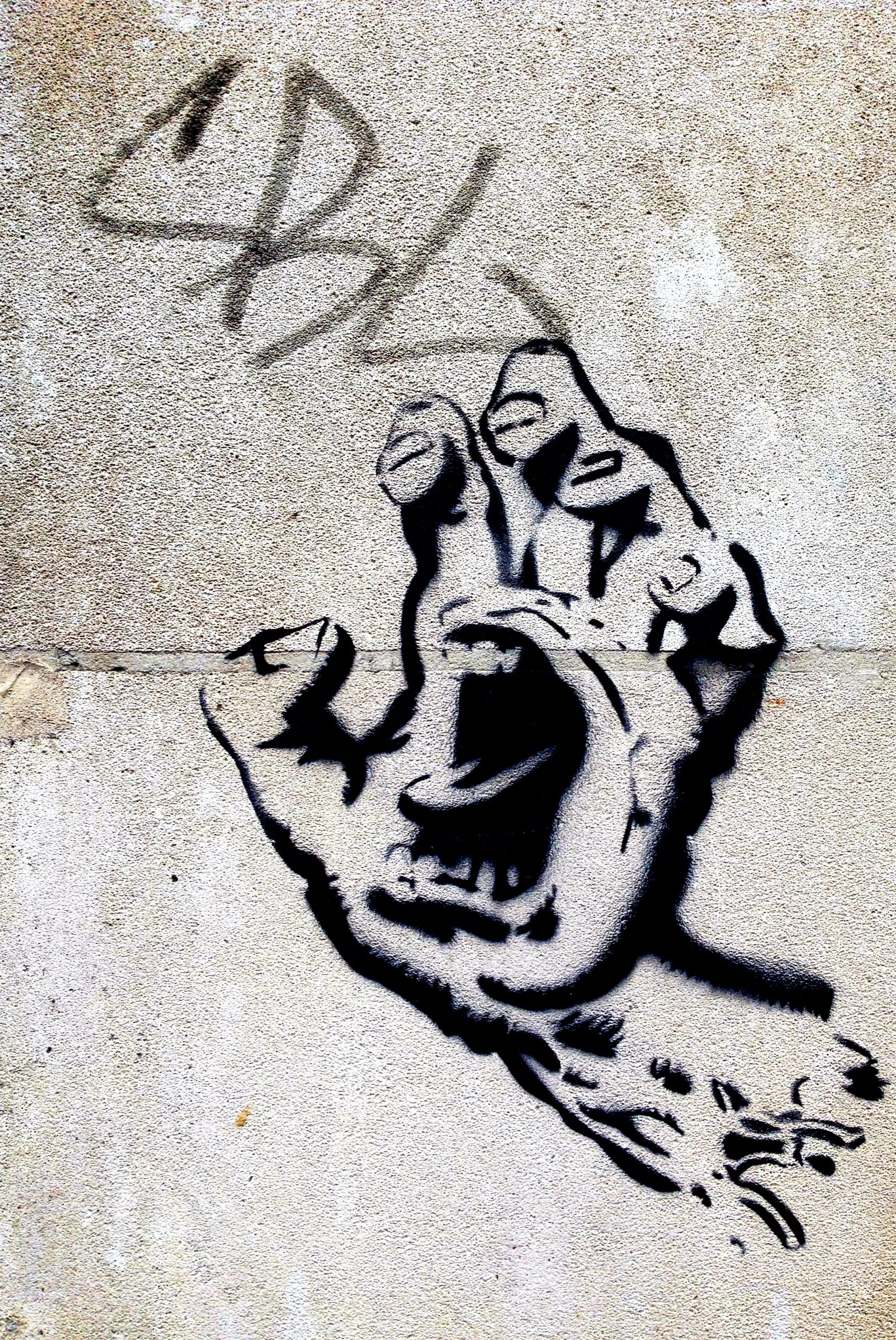
Essentially, they are feelings of powerlessness. To over anger, frustration and hostility you need to overcome underlying issues that block positive emotions.
In the meantime, you need to develop coping strategies that enable you to release trapped energies and upgrade subconscious programs with behaviours, thoughts and attitudes and naturally generate positive actions and reactions.
When the aggressive aspect of the Ares archetype is repressed and underdeveloped – like Ares trapped in the bronze jar – people have a tendency towards procrastination when faced with something they need to or want to.
Eventually, the failure to channel this energy explodes in a fit of aggression when their trigger is pulled.
“When Ares has been so long bottled up, physical reactivity to people and events – the embodied emotional responses – can be totally outside of conscious awareness. A man (or woman) may appear to live only in his head, and yet his body still reacts with physical tension or release. For example, he may fear anger and fear, but his muscles may tense or hands may become clenched fists. He usually doesn’t notice his physical reaction until someone else comments. Even further from consciousness and expression is an Ares who makes himself known only in an elevated blood pressure, or through the bowels, as constipation or diarrhea.” ~ Jean Shinoda Bolen M.D., Gods In Everyman
The shadow warrior possesses the self-ego axis when you sense a perceived loss of control – especially when you feel degraded or your values are being threatened.
When values are undermined, your pride is dented. If the criticism you received as a child remains an emotional wound in your subconscious, that frustration prompts instinctive actions that are programmed to defend you.
But rather than tearing into battle without thinking, help can come through other archetypal energies in the form of Apollo and Athena.
Apollo is known for his foresight and even-tempered nature and the cool-headedness of Athena gives you restraint and diplomacy.
Apollo is the Greek God of the sun and half brother of Ares. As the personification of the sun, Apollo relates to the Self-ego axis and understanding. In esoteric traditions, this can simply be understood to mean self-realisation.
In a self-realised state of mind, you are able to nurture a calm nature because you see the bigger picture in any given situation. This gives you clarity of mind which is not fogged by the anger, frustration and hostility that drives Ares into a battle frenzy.
Developing a deeper understanding of yourself and others nurtures empathy whereby you can see the other person’s point of view. This quality enables you to defuse anger.
When you remove anger from a situation, you avoid the drama and are more likely to reach a satisfactory resolution without increasing your stress levels.
In Greek Mythology, we also find that Apollo is not afraid to stand up for himself. Although he seeks revenge against Niobe by killing her 7 sons (and Artemis kills her 7 daughters), the assassination is to punish Niobe for her pride and arrogance.
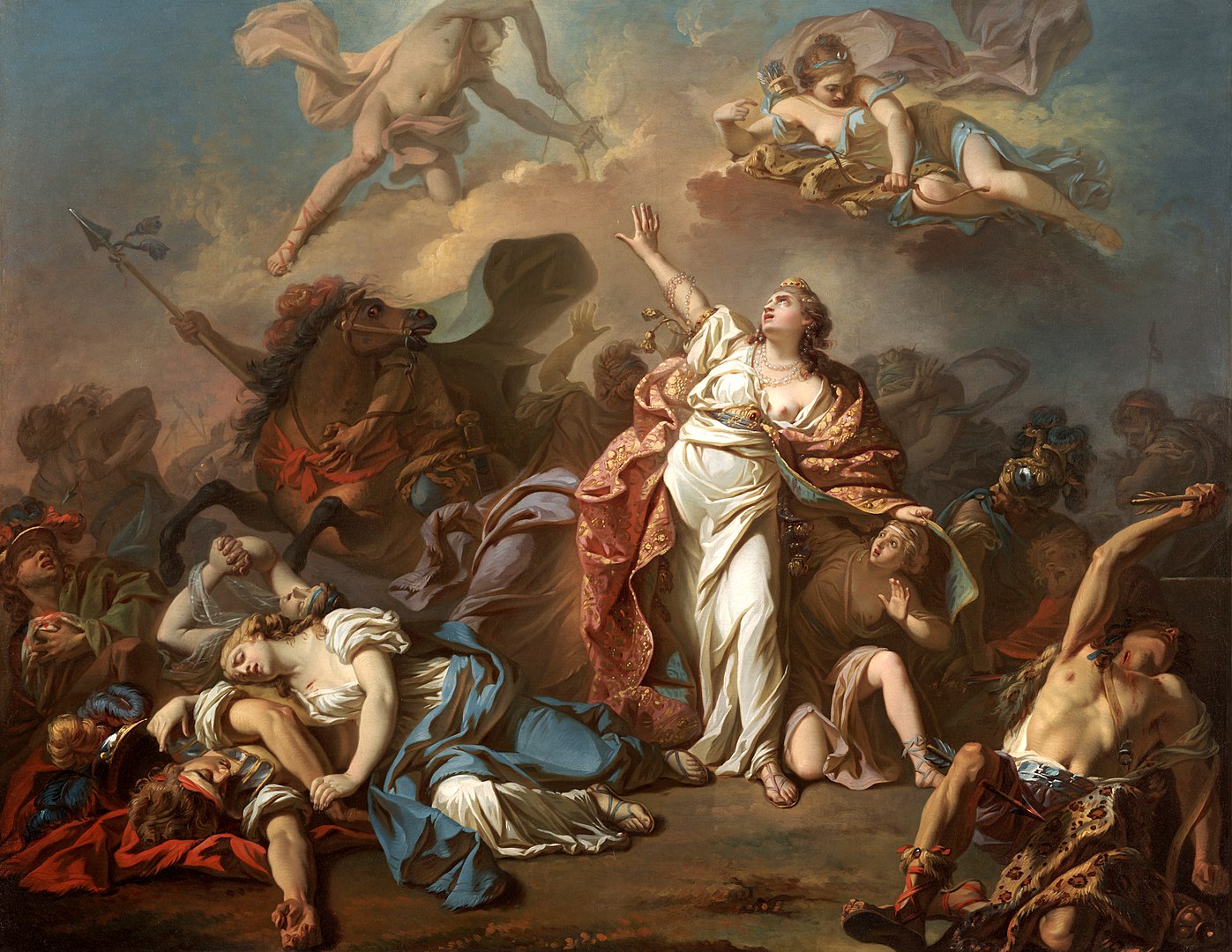
Apollo is also associated with law and justice. Sometimes you may become angry when you feel as though you have been unfairly treated and thus seek revenge.
Ares seeks revenge when Herakles kills his son but by storming into battle without a plan is easily knocked to the ground. People with hubris are eventually ‘brought down to earth’ – meaning to be humbled.
Athena is most well-known as the goddess of wisdom. Wisdom comes when you put knowledge into action. The goddess is also associated with war and weaving, both of which require vision and strategy.
Ares was typically rebuked by Athena because of his lack of foresight. She also fought against her half-brother by aiding his opponent. The second time Ares squares up to Herakles, his half-sister advises him not to fight because he is not destined to kill the hero. Ares ignores her and is made to look a fool.
The fight with Herakles is another example in which Ares felt justice should be served. Ares had killed his son and Ares wanted revenge. Holding on to your values will cause you to act irrationally.
A smarter strategy is to adopt empathy and accept that life is not always fair. No matter what you are getting frustrated about, you will not resolve it by lashing out at people with your fists or your tongue.
Athena (Minerva in Roman mythology) is renowned for her cool-thinking, rational and diplomacy. Born directly from the head of Zeus in full body armour, she is unemotionally attached like Ares and represents inspiration.

Unaffected by emotions, you are able to keep a cool head, restrain yourself from overreacting and find the right words and actions to resolve the situation.
It’s also worth noting that the negative aspect of Athena energy also displays characteristics of the Grandstander Bully. Her energies surface as vindictiveness – like when she turns the beautiful Medusa into a snake-haired monster.
The Grandstander Bully feels a sense of entitlement and has high expectations about how other people should treat them. If you do not stroke their ego, they can be cold, vindictive and abusive.
These attributes are all qualities of a shadow warrior and are caused when someone feels a lack of self-worth within themselves. They typically feel frustrated and angry and have a lot of pent up resentment.
When warrior energy is nurtured, you will not project any of the negative qualities that are common in the Grandstander Bully archetype. Your personality is warm and compassionate, your outlook on life is positive and enthusiastic.
When you are endowed with the qualities that warrior energy manifests, you are courageous, energetic and decisive. You get jobs done, you do them well, and have strong values that are worth fighting for. You also have a strong inner core and know when not to fight.
